To be ready in the event of the appearance of covid-19 infected persons, the government keeps denying the fake news circulating on the internet … Since the pandemic was reported in the neighboring countries, the government is mobilized at all levels.
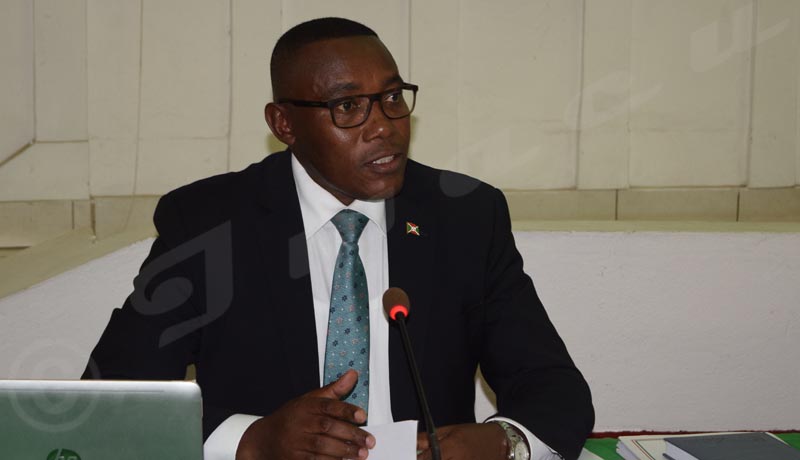
Thaddée Ndikumana: “The containment measure is extended to all passengers from the European Union and those who stayed there 14 days prior to their entry into Burundi.”
From the Minister of Public Health, the Minister of External Relations and the Secretary General and spokesman for the government, everyone has been mobilized since early January 2020.
Certainly, we feel a generalized fear but in no way should the population give in to it ” as long as the hand of the Most High remains on our side,” said Prosper Ntahorwamiye, spokesman and secretary general of the government, in the press release of March 25. “An exception, however, which should not cause us to not be vigilant,” he said.
With a dozen other countries, Burundi remains the only country that has not yet recorded cases of patients suffering from Covid-19. Since the onset of this pandemic, the relevant ministry, in addition to the extension of preventive measures (hand washing with soap, sneezing in the hollow of one’s elbow or using single use handkerchiefs, etc . ), strengthened surveillance at all entry points in Burundi .
The measures were taken with reports of the disease in neighboring countries (Rwanda, DRC). Without elaborating on the measures to be taken to address the coronavirus, the Minister of the Interior Pascal Barandagiye called the governors to “monitor points of entry at all borders.”
In the same context, the secretary general and spokesman for the government, Prosper Ntahorwamiye announced the suspension of all official missions abroad until further notice, which would be difficult with so many closed airports in Africa and elsewhere.
Faced with the surge in coronavirus everywhere else, the Ministry of Public Health has extended the list of countries of origin concerned by quarantine: “In addition to the quarantine measure for all passengers from 7 countries, in order to prevent this pandemic, we would like to inform the national and international public that the said measure is extended to all passengers from the European Union and those who stayed there 14 days prior to their entry into Burundi.”
In the eyes of the public, all these measures reinforce the feeling that the pandemic is fast approaching. As one of the Priority 3 countries (WHO categorization for countries where the virus has not yet been declared, Editor’s note), an epidemiologist who spoke on condition of anonymity said: “At all costs, the government must strengthen its alert level and create a support fund to fight this disease, like other countries.”
Containment far from being sufficient
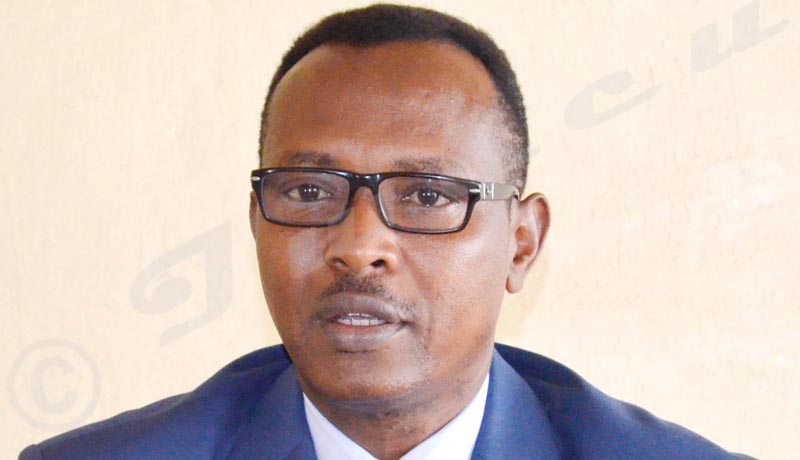
Freddy Mbonimpa: “If it is deemed an emergency, closing down certain leisure places where a lot of people meet will be productive.”
Faced with the health drama that is hitting the world, Burundians are gradually becoming more and more aware of the danger.
However, as usual, large gatherings were observed on the weekend of March 21 during Sunday worship in particular and some of the faithful did not hesitate to shake hands, or give each other hugs.
During Mass, the traditional hug between the faithful to wish each other “the peace of Christ” among Catholics was not made and, for communion, the faithful no longer receive the Host in the mouth, but exclusively in the hand. However, the recommended distance is to observe at least 1.5m.
A special mention for the managers of the bus parking lots in Bujumbura who have made a big effort: customers are asked to wash their hands with soap before entering the bus. There is even a sort of agent responsible for reminding anyone who seems to neglect or ignore the instruction.
Fear caused the mask price to go up. It went from simple to double. “Stocks finished a few days after the demand exceeded the supply. Preferably, we serve our loyal customers a lot of 50 masks for a sum of BIF 58,000. Before this coronavirus pandemic, the same lot was sold for 35,000 francs,” says an employee of a wholesale pharmacy.
During a meeting with media professionals on Tuesday March 24, the mayor of Bujumbura indicated that closing certain places of leisure gathering many people will be productive if the situation deems urgent.
“Certainly, so far, no measure in this direction has been taken. But if it is deemed urgent, we will see how to act,” said Freddy Mbonimpa.
What is good is that the measure seems unanimous in business domain for the general interest of the population, said Omar, CEO of Safi Beach, a location near Lake Tanganyika, where young people often go.
For him, as long as it can help, he says he’s ready to tighten his belt.
A series of consequences
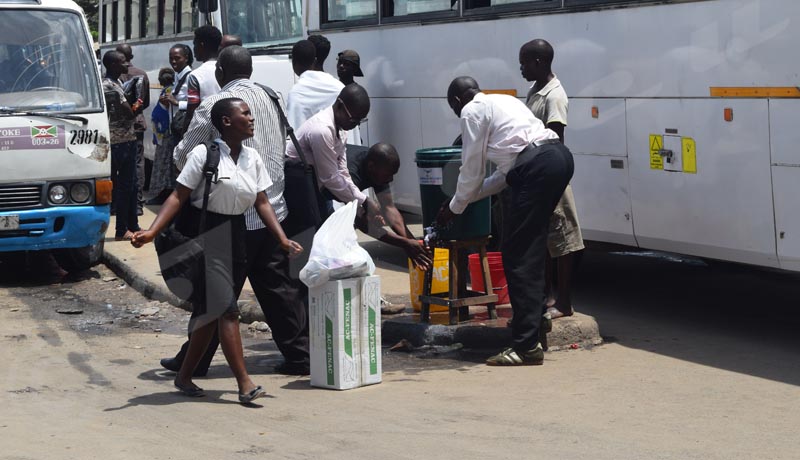
Bus passengers requested to wash their hands before entering
No movement of customers or travelers as usual in the market called “Bujumbura City Market” commonly known as “Kwa Siyoni”. Some travel agencies serving the cities of Uvira and Bukavu in the east of the DRC, which have their headquarters within this market, are closed. But some agents open the offices, just to kill time, they say.
Following the decision of closing borders as a precaution against the coronavirus, Congolese traders rushed more in this market to sell their products and buy foodstuffs.
According to an employee of a Bujumbura-Bukavu travel agency met in the morning of this Tuesday, March 24, this measure is a necessary evil: “Our agencies are closing one after the other, but it is essential to stop by all means the spread of coronavirus.”
The sellers of second-hand shoes in this market indicate that the majority of their customers were Congolese. They regret that their loyal customers will not come to buy shoes especially in the Easter days.
But aware of the danger of Covid-19, these traders avoid complaining: “Health above all,” said one of them.
The situation is the same for BRARUDI beverage shops being in that market, wholesalers who used to come a few weeks ago have become rare. “Customers come in twos and threes because most of our them are from Congo,” said one of the managers of these BRARUDI product shops.
Rumonge/ The plight of quarantined people
Isolated for a week, travelers from the DR Congo face the lack of food; places of comfort, blankets, medicines,… Their families ask that the basic needs be guaranteed.
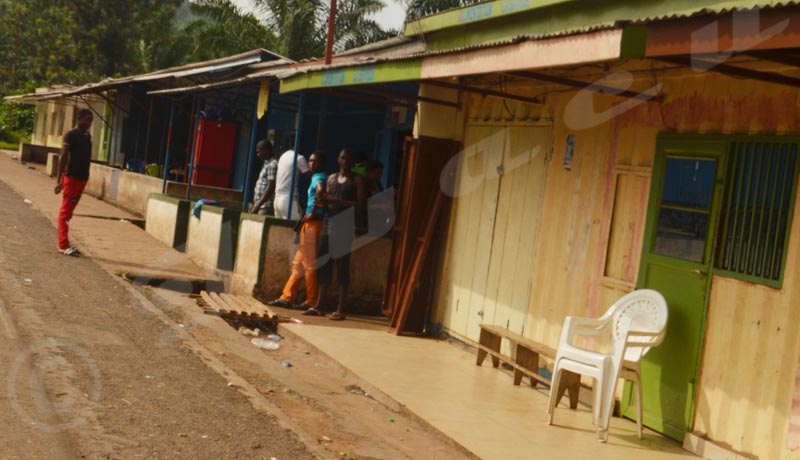
Small businesses run slowly at the port of Rumonge
There are 146 men, women and children. All of them are Burundian nationals from the Democratic Republic of Congo where they had gone in search of work.
Some cultivate the land, others are fishermen, craftsmen and others do small trade between Rumonge province and south-Kivu in DRC.
Originally from different provinces of Burundi, these people arrived at the port of Rumonge on Monday, March 23.
Suddenly, the administrative and health authorities of the province of Rumonge decided to quarantine them to see if they do not have coronavirus. Without financial means, they indicated that they were unable to pay for hotel rooms. The administrative and health authorities of Rumonge province then decided to put them in a meeting room in Rumonge commune.
Deplorable living conditions
In addition to having no bedrooms, this room has only two latrines without water. Bad enough, there are no blankets, mosquito nets, mattresses or mats.
On Tuesday March 24, the room was supplied with drinking water, some mosquito nets, cans, but without soap. Their families ask the administrative and health authorities to place them in a place that meets the minimum living conditions, like places that are used for quarantine in other provinces.
Contacted, the provincial doctor of the Rumonge health province indicated that he had put into practice all the recommendations of the Ministry of Public Health aiming to protect oneself against this coronavirus pandemic.
He calls on the whole population to put hygiene rules into practice.
Paralyzed trade
The small trade runs slowly at the port of Rumonge. For example, two shiploads of salt from Tanzania have just spent two days without being unloaded. The cause: recommendations for the prevention against Covid-19.
Since then, the socio-economic consequences of this pandemic have been numerous. Human rights defenders demand that there be many awareness sessions so that the entire population is aware of the danger linked to coronavirus.
ILLUMINATION – “Burundians must wake up!”
In relation to this Covid-19 threat, Iwacu met Martin Manirakiza, an infectious disease specialist at Roi Khaled hospital. He calls on Burundians to be more vigilant.
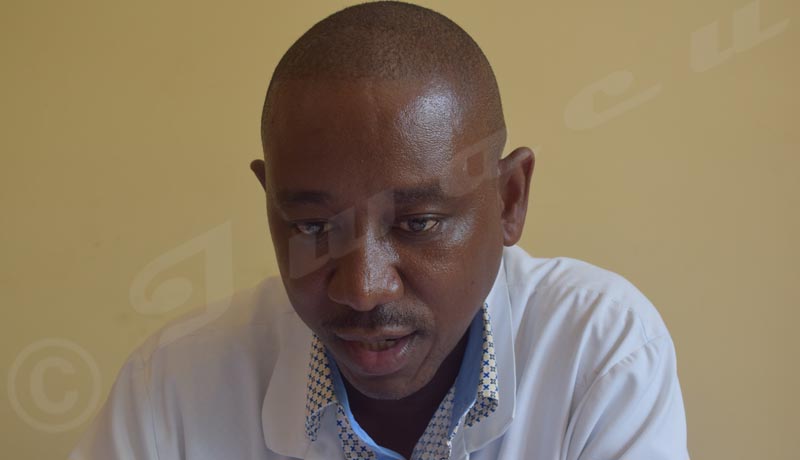 Is the Burundian health system able to cope with coronavirus?
Is the Burundian health system able to cope with coronavirus?
We may not be ready as much as Europeans or Asians, but in our own way, we are able to deal with a possible case of coronavirus. Containment systems have been adopted for travelers from countries already affected by the pandemic and in specific places where they will be monitored for fourteen days.
Are there enough healthcare staff members to deal with the pandemic?
The nursing staff is never sufficient even in developed countries. As far as we are concerned, we will try to do it as we do every day. I think that the nursing staff present here can take care of any cases that may arise.
What about the training of the nursing staff at Roi Khaled hospital in terms of coronavirus control?
Training is in the process of being implemented for this week and the following one and will focus on the prevention and control of infection in the healthcare domain. It is intended for all nursing staff (doctors, nurses, etc.).
I would also like to take this opportunity to clarify that patients with Coronavirus are by no means special cases compared to other patients. Even though Covid-19 raises alert all over the world, it is a pathology which, most of the time, produces symptoms of flu – often cold – and it is therefore the type of ailments that all doctors can deal with. In very few cases – around 2% – coronavirus presents itself in severe forms, characterized in particular by the appearance of respiratory distress syndrome and on this too, any trained doctor has the capacity to provide care to such cases. The only concern that deserves attention is protection against this virus among healthcare staff.
What about places to accommodate patients with Covid-19 within your hospital?
A space is being set up in our hospital for possible cases of coronavirus.
Will the difficult situation that our public Treasury is going through allow the country to commit the necessary means to countering the coronavirus?
I’m not worried about that, because I don’t think there will be any need for additional financial means. For example, oxygen and fever medications are available in sufficient quantities. And even in the opposite case, I do not think that large sums in terms of billions will be required.
Would it be relevant, at the current stage, to close schools, limit public gatherings such as sports meetings, political meetings or religious offices?
At this stage, as reported by the Minister of Health, no case of coronavirus has yet been reported on the Burundian soil. So, I don’t see how we could close the markets or limit social gatherings! However, prevention measures must be strengthened by setting up washing points in all places likely to accommodate more than one person. Also, anyone with flu-like symptoms is asked to step aside, or stay at home to avoid infecting others if they become infected with the coronavirus pandemic.
What would you say to Burundians who take this virus lightly?
Burundians must wake up and be aware of the threat posed by this virus! And for this, our ancestral sayings of the style ‘Black people cannot die of dirt’ must be banished.
Isn’t the problem of access to drinking water present in some corners of the country an obstacle to the “clean hands” operation within the framework of this preventive fight against Covid-19?
This problem of access to drinking water is most often found in urban centers, unlike in rural areas where the water flowing from different sources and rivers is fairly clean. And for that, I would call on the company distributing water to make sure there are no water cuts in cities, especially with the threat posed by the coronavirus.
What would you ask the public authorities for better prevention against Covid-19?
Apply strict border control measures (entry and exit of people). Strengthen awareness in relation to ‘barrier gestures’: recurrent hand washing, recommend people not to cough or sneeze in public and if necessary, to use the hollow of their elbow rather than their hands and then, for people with flu symptoms, avoid meeting others. And to those of my fellow citizens who have access to protective masks, I would advise them to use them.
Ebola and Covid-19, twin viruses?
Dr Martin Manirakiza reveals that Ebola and coronavirus are two different viruses. This infectious disease specialist says that Ebola belongs to the family of Filoviridae while Coronavirus belongs to the family of coronaviridae. As for the symptoms, this health professional states that apart from the cough that occurs in cases of Ebola as in the case of the coronavirus, the latter attacks the respiratory system while Ebola attacks all human organs.
Dr. Manirakiza states that Covid-19 never causes bleeding while the hemorrhagic syndrome is a feature of Ebola. This doctor working in Kamenge University Hospital (CHUK) says” Covid-19 generally does not kill except in the case of some patients who suffer from chronic diseases or who are subjected to treatments which weaken the immune defenses of the organism, without forgetting patients aged over 75 years of age.»
He emphasizes at the same time that “Ebola kills a lot and affects everyone as much.”
This infectious disease specialist also underlines that the only resemblance between the two pandemics is at the level of the mode of transmission which is generally done by manual contact. “An Ebola patient can transmit the disease to people around them when coughing,” he adds.
Martin Manirakiza also talks about the benefits of permanent manual hygiene. “If rules for hand hygiene remain respected, it will severely limit the impact of other diseases such as typhoid fever, cholera, Amoebiasis, Dysentery, …” , says the doctor.
As for those who think that the non-appearance of Ebola in Burundi – despite its strong presence in the DRC until recently – would be ” the sign ” that the Covid-19 will remain absent in Burundi, Dr Manirakiza sets the record straight: ” First, people should know that when there was an Ebola outbreak in DR Congo, the authorities of this neighboring country took the decision to carry out strict monitoring of movements from affected villages to those not yet reached by the virus.”
This medical specialist continues his remarks on the populations on the other side of the border who would have taken seriously the hygiene measures which had been prescribed to them, in particular hands washing. “All of this largely prevented the onset of Ebola in Burundi.”
Dr. Manirakiza added that border controls have also helped prevent the outbreak of Ebola in Burundi.
Translated into English by Pierre Emmanuel Ngendakumana



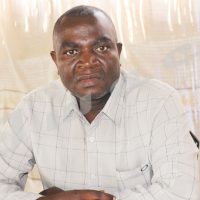














 IWACU Open Data
IWACU Open Data

